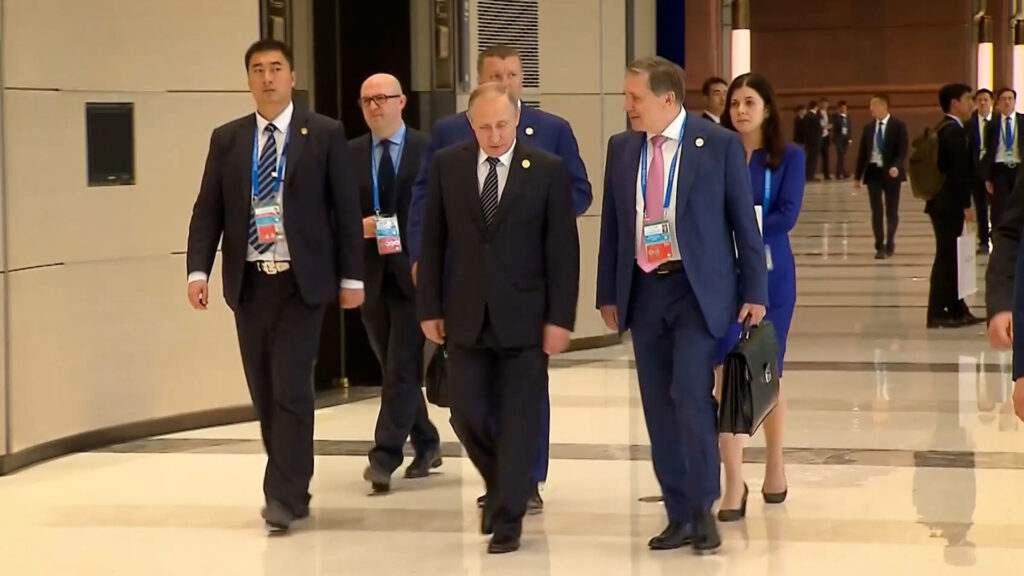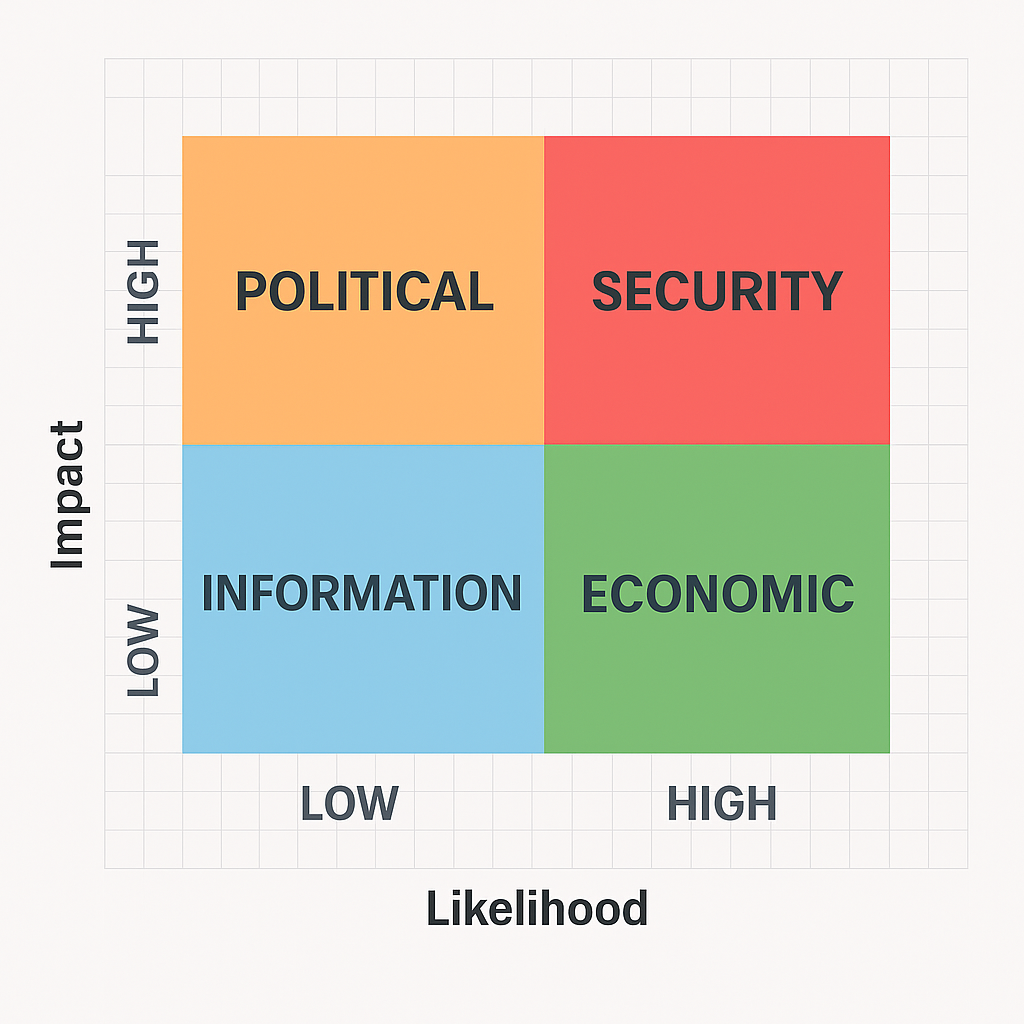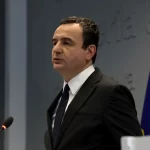Austria’s historic policy of neutrality—enshrined in its 1955 State Treaty and a cornerstone of post-war identity—is now under serious scrutiny. Mounting geopolitical instability, European disillusionment with “neutrality,” and the persistent threat of Russian hybrid operations have triggered unprecedented debate in Vienna. We assess recent Russian intelligence activities in Austria that have undermined trust and exposed vulnerabilities in the neutral framework.
1. Origins and Logic of Austrian Neutrality
The 1955 State Treaty and Moscow’s Role
Austria declared permanent neutrality in October 1955 as part of an agreement that led to the withdrawal of Allied (especially Soviet) troops after WWII. This was a geopolitical compromise:
- Allowed Austria to regain full sovereignty;
- Assuaged Soviet fears of NATO expansion;
- Reflected a national desire to avoid Cold War entanglements.
Pillars of Austrian Neutrality
- Non-alignment in military alliances (especially NATO);
- No foreign military bases on Austrian soil;
- A defensive-only military posture;
- A strong emphasis on diplomacy, humanitarian work, and UN peacekeeping.
For decades, this model provided stability, identity, and international respect. But neutrality was always premised on a predictable global order—an assumption that no longer holds.
2. Why Austria May Abandon Neutrality Now
A. Post-2022 Geopolitical Shock
Russia’s full-scale invasion of Ukraine shattered illusions of neutrality as a shield from war. Austria, though formally neutral, quickly aligned with EU sanctions, expelled Russian diplomats, and increased defense spending.
Quote: Austrian Defense Minister Klaudia Tanner (2024):
“Neutrality cannot mean naivety. Security begins with awareness—and preparedness.”
B. Rising Threat Perception
- Hybrid warfare tactics (cyberattacks, propaganda, espionage) are not deterred by neutrality.
- Russia has treated Austria as a soft target, infiltrating its political, financial, and media systems.
- Austrian intelligence officials have warned of “persistent Russian operations on sovereign territory.”
C. NATO’s Appeal and Sweden-Finland Precedent
The accession of Finland and Sweden—longstanding neutrals—into NATO in 2023-2024 changed the European security landscape. Austrian elites increasingly see neutrality as obsolete:
- NATO membership now viewed as normal, not escalatory;
- Collective defense (Article 5) offers a level of deterrence neutrality cannot;
- European Parliament figures have openly questioned the value of non-alignment.
3. A European Trend: Neutrality Under Strain
| Country | Status (2022) | Current Position (2025) |
| Finland | Military neutral | NATO member since 2023 |
| Sweden | Military neutral | NATO member since 2024 |
| Ireland | Politically neutral | Debating “enhanced EU defense cooperation” |
| Switzerland | Strictly neutral | Sent non-lethal aid to Ukraine, under public pressure to adapt |
| Austria | Neutral since 1955 | Active internal debate on ending neutrality |
Neutrality is increasingly perceived not as principled independence, but as strategic vulnerability.
4. Russia’s Role in Austria’s Strategic Reassessment
A. Longstanding Espionage Hub
- Vienna has been dubbed the “spy capital of Europe.”
- Lax surveillance laws and large diplomatic presence made it fertile ground for SVR and GRU operatives.
- Dozens of suspected Russian intelligence agents have operated under diplomatic cover.
B. Key Incidents
- Martin Weiss Affair (2023):
Austrian intelligence uncovered a pro-Russian influence operation involving an ex-diplomat and a fake civil society group lobbying against sanctions. - Russian-Linked Cyber Intrusions (2022–2024):
- Major cyberattack on Austrian foreign ministry traced to APT28 (Fancy Bear).
- Investigations suggested possible targeting of Austrian defense procurement plans.
- FSB Operations via Cultural Networks:
- Russian Orthodox organizations and “friendship societies” used to recruit assets and spread pro-Kremlin narratives.
- Links to parliamentary staffers under investigation in 2024.
C. Strategic Intent
- Exploit neutrality to build an espionage corridor into the EU;
- Use Austria as a platform for laundering influence operations;
- Undermine EU cohesion from the inside.
Statement: Austrian BVT (State Intelligence Service) 2025 Assessment:
“Neutrality has not protected Austria from foreign aggression. It has invited it.”
5. Risks and Opportunities of Abandoning Neutrality
Risks
- Domestic backlash from neutralist traditions, especially older generations;
- Potential Russian retaliatory measures (cyberattacks, energy disruptions, disinformation);
- Political fragmentation or far-right exploitation of the issue.
Opportunities
- Greater alignment with EU defense and NATO interoperability;
- Reduction in hostile intelligence activity through tighter security vetting;
- Restoration of public trust in Austria’s defense posture;
- Improved access to collective deterrence in a high-risk era.

More on this story: Kneissl case to show how deeply Russian intelligence penetrated EU

More on this story: Moscow sets the stage for intelligence infiltration into OSCE PA
6. Outlook and Strategic Scenarios
| Scenario | Likelihood | Notes |
| Status quo with reformed neutrality | Medium | Increased defense investment, deeper EU ties, but no formal NATO accession |
| Abandonment of neutrality and NATO application | Moderate-High | Possible by 2027 if security trends worsen |
| Far-right reversal of pro-Western policy | Low | FPÖ rising, but unlikely to reverse strategic drift without backlash |
Strategic Neutrality is No Longer Sustainable
Austria is confronting a historic turning point. Neutrality, once a shield against conflict, is now seen by many as a security liability. Russia’s repeated abuse of Austrian sovereignty—through espionage, cyberattacks, and narrative warfare—has shattered the illusion that neutrality guarantees safety or relevance.
If current debates continue on their present trajectory, Austria will either:
- Redefine neutrality to include active participation in EU defense structures, or
- Join NATO, following the Nordic precedent, under pressure from persistent hybrid threats.
The neutral posture of the past no longer offers protection in the age of strategic ambiguity and authoritarian aggression.
we can conclude that Russia’s invasion of Ukraine unintentionally strengthened NATO in several significant ways:
1. NATO Enlargement
- Finland and Sweden, historically neutral, applied for NATO membership after the invasion.
- Finland joined in 2023; Sweden followed in 2024.
- This expanded NATO’s border with Russia by over 1,300 km and enhanced NATO’s strategic depth in the Baltic and Arctic regions.
2. Increased Defense Spending
- European NATO members, especially Germany and the Baltic states, sharply increased military budgets.
- Germany reversed decades of military caution, announcing a €100 billion defense fund and committing to meet the 2% GDP NATO spending target.
3. Renewed U.S. and European Unity
- The invasion revived transatlantic cohesion, which had weakened under the Trump administration.
- Joint sanctions, troop deployments, and arms support to Ukraine reaffirmed NATO as the core framework for Western security.
4. Reaffirmation of NATO’s Purpose
- The invasion revalidated NATO’s mission as a defense alliance against major-state aggression—something that had been questioned in recent years.
- Even historically skeptical members (e.g. France) recognized the need for collective defense under Article 5.
5. Military Presence and Readiness
- U.S. and NATO forces have strengthened their posture on the eastern flank (Poland, Romania, Baltic states).
- New battle groups, air defense systems, and regular exercises have significantly boosted deterrence.
6. Public Support
- Public opinion in NATO countries shifted sharply in favor of the alliance and military readiness.
- In countries like Finland, support for joining NATO went from below 30% pre-invasion to over 70% post-invasion.
Conclusion
Rather than weakening or dividing NATO, Russia’s war in Ukraine galvanized it. The strategic miscalculation by the Kremlin produced:
- A larger, more unified alliance,
- Stronger military investments, and
- A clearer focus on countering Russian aggression.
So yes, paradoxically, Russia’s attempt to stop NATO expansion and Western unity only accelerated both.
Austria’s potential refusal of neutrality—a seismic shift in its post-WWII identity—could have deep and far-reaching consequences across Europe. How it could influence continental security and geopolitical alignment:
1. Symbolic Collapse of Post-War Neutrality Model
- Austria has been Europe’s emblem of armed neutrality since 1955, tied to the Soviet troop withdrawal.
- Abandoning neutrality would signal the end of neutrality as a viable security doctrine in today’s security environment—especially in the face of Russian aggression.
- This would pressure other neutral or semi-neutral states (e.g., Ireland, Malta, Switzerland) to reassess their roles in collective European defense.
2. Shift Toward a Fully Integrated EU Defense Posture
- Austria’s move would strengthen the argument that European security cannot rely on halfway positions.
- It would:
- Encourage closer EU–NATO integration,
- Support the EU’s strategic autonomy push, and
- Reinforce momentum toward a common EU defense identity.
- For countries like Germany and France, this reinforces the idea of a “Europe that protects” through unified commitments.
3. Pressure on Other Neutral States
| Country | Potential Effect |
| Ireland | May face calls to clarify security alignment, especially after hybrid threats from Russia |
| Malta | Could be pressured diplomatically to contribute to EU defense or hybrid threat response |
| Switzerland | Though outside the EU, may see erosion of neutrality credibility as it already sanctions Russia |
4. Strategic Setback for Russia
- Russia has long used Austria’s neutral status as:
- A listening post for intelligence operations (especially Vienna),
- A neutral diplomatic backchannel, and
- A weak point in Western consensus-building.
- Austria joining a collective defense or ending neutrality would shrink Russia’s influence space in central Europe and limit soft power operations.
5. Changing Public and Political Perception
- If neutrality is no longer seen as protecting sovereignty but exposing the country to asymmetric threats, the European public may increasingly support collective defense doctrines.
- This marks a psychological shift: from “staying out of wars” to “preventing wars through alliances.”
6. Erosion of the “Bridge” Mentality
- Austria, Switzerland, and others long saw themselves as bridges between East and West.
- Russia’s war in Ukraine undermines that role: there’s no “bridge” to authoritarian aggression.
- Austria’s shift may show that “fence-sitting” is no longer a geopolitical option.
If Austria abandons neutrality, it could:
- Become a tipping point for redefining European defense identity,
- Signal that neutrality is ineffective against modern hybrid and conventional threats, and
- Encourage alignment over autonomy in an age of heightened security threats, primarily due to Russian and Chinese assertiveness.
Austria’s potential refusal of neutrality—a seismic shift in its post-WWII identity—could have deep and far-reaching consequences across Europe. Here’s how it could influence continental security and geopolitical alignment:
1. Symbolic Collapse of Post-War Neutrality Model
- Abandoning neutrality would signal the end of neutrality as a viable security doctrine in today’s security environment—especially in the face of Russian aggression.
- This would pressure other neutral or semi-neutral states (e.g., Ireland, Malta, Switzerland) to reassess their roles in collective European defense.
2. Shift Toward a Fully Integrated EU Defense Posture
- Austria’s move would strengthen the argument that European security cannot rely on halfway positions.
- It would:
- Encourage closer EU–NATO integration,
- Support the EU’s strategic autonomy push, and
- Reinforce momentum toward a common EU defense identity.
- For countries like Germany and France, this reinforces the idea of a “Europe that protects” through unified commitments.
- 3. Pressure on Other Neutral States
| Country | Potential Effect |
| Ireland | May face calls to clarify security alignment, especially after hybrid threats from Russia |
| Malta | Could be pressured diplomatically to contribute to EU defense or hybrid threat response |
| Switzerland | Though outside the EU, may see erosion of neutrality credibility as it already sanctions Russia |

4. Strategic Setback for Russia
- Russia has long used Austria’s neutral status as:
- A listening post for intelligence operations (especially Vienna),
- A neutral diplomatic backchannel, and
- A weak point in Western consensus-building.
- Austria joining a collective defense or ending neutrality would shrink Russia’s influence space in central Europe and limit soft power operations.
5. Changing Public and Political Perception
- If neutrality is no longer seen as protecting sovereignty but exposing the country to asymmetric threats, the European public may increasingly support collective defense doctrines.
- This marks a psychological shift: from “staying out of wars” to “preventing wars through alliances.”
6. Erosion of the “Bridge” Mentality
- Austria, Switzerland, and others long saw themselves as bridges between East and West.
- Russia’s war in Ukraine undermines that role: there’s no “bridge” to authoritarian aggression.
- Austria’s shift may show that “fence-sitting” is no longer a geopolitical option.
: A Continental Domino Effect
If Austria abandons neutrality, it could:
- Become a tipping point for redefining European defense identity,
- Signal that neutrality is ineffective against modern hybrid and conventional threats, and
- Encourage alignment over autonomy in an age of heightened security threats, primarily due to Russian and Chinese assertiveness.
Austria’s potential refusal of neutrality—a seismic shift in its post-WWII identity—could have deep and far-reaching consequences across Europe. Here’s how it could influence continental security and geopolitical alignment:
1. Symbolic Collapse of Post-War Neutrality Model
- Abandoning neutrality would signal the end of neutrality as a viable security doctrine in today’s security environment—especially in the face of Russian aggression.
- This would pressure other neutral or semi-neutral states (e.g., Ireland, Malta, Switzerland) to reassess their roles in collective European defense.
2. Shift Toward a Fully Integrated EU Defense Posture
- Austria’s move would strengthen the argument that European security cannot rely on halfway positions.
- It would:
- Encourage closer EU–NATO integration,
- Support the EU’s strategic autonomy push, and
- Reinforce momentum toward a common EU defense identity.
- For countries like Germany and France, this reinforces the idea of a “Europe that protects” through unified commitments.
3. Pressure on Other Neutral States
| Country | Potential Effect |
| Ireland | May face calls to clarify security alignment, especially after hybrid threats from Russia |
| Malta | Could be pressured diplomatically to contribute to EU defense or hybrid threat response |
| Switzerland | Though outside the EU, may see erosion of neutrality credibility as it already sanctions Russia |
Austria’s move toward abandoning neutrality would mark a symbolic collapse of key elements of Russia’s European strategy, particularly its longstanding effort to divide, delay, and dilute NATO and EU cohesion:
1. Collapse of Russia’s “Neutral Buffer” Strategy
- Russia has traditionally counted on neutral states like Austria, Switzerland, Finland (formerly), and Serbia to act as:
- Barriers to NATO expansion,
- Zones of Russian influence and intelligence operations, and
- Diplomatic bridges where Moscow could shape discourse.
- Austria abandoning neutrality would shrink this buffer zone, reinforcing the idea that neutrality is no longer sustainable in the face of Russian aggression.
2. Strategic Defeat in Russia’s Vision for a Divided Europe
- Russia’s geopolitical doctrine aims to prevent NATO enlargement and encourage fragmentation within Europe.
- But instead, Russia’s war in Ukraine has catalyzed deeper integration:
- NATO gained new members (Finland, Sweden),
- Former neutrals shifted westward, and
- Defense budgets and military coordination in Europe have soared.
- Austria moving away from neutrality reinforces the failure of Russia’s “divide-and-neutralize” playbook.
👁️ 3. Loss of Intelligence and Influence Hubs
- Vienna has long been an intelligence haven for Russian operatives under diplomatic cover.
- If Austria joins deeper military or intelligence-sharing structures with NATO or the EU, Russia’s operational freedom in the country collapses.
- This would force Moscow to relocate its covert operations, losing access to international institutions in Vienna (e.g., OSCE, IAEA).
4. The Myth of NATO “Encirclement” Becomes Obsolete
- Russian propaganda frames NATO as an aggressor “encircling” Russia.
- But the real trend is countries voluntarily seeking NATO’s protection because of Russian behavior.
- Austria’s shift would validate NATO as a shield, not a threat, undermining the Kremlin’s narrative domestically and abroad.
5. Strategic Isolation of Russia in Europe
- With Austria reconsidering neutrality, Russia faces isolation not only militarily but diplomatically.
- Moscow is increasingly dependent on non-European actors (China, Iran, North Korea) for support.
- Russia is no longer seen as a legitimate stakeholder in European security—but as a destabilizing force.
: A Symbolic and Strategic Defeat
Austria’s move would not just be a national policy shift—it would be:
- A collapse of Russia’s soft-power reach into Western institutions,
- A blow to its post-Soviet strategy of exploiting neutral spaces,
- And a clear message that Russia’s aggression has backfired, reinforcing NATO and Western unity.




